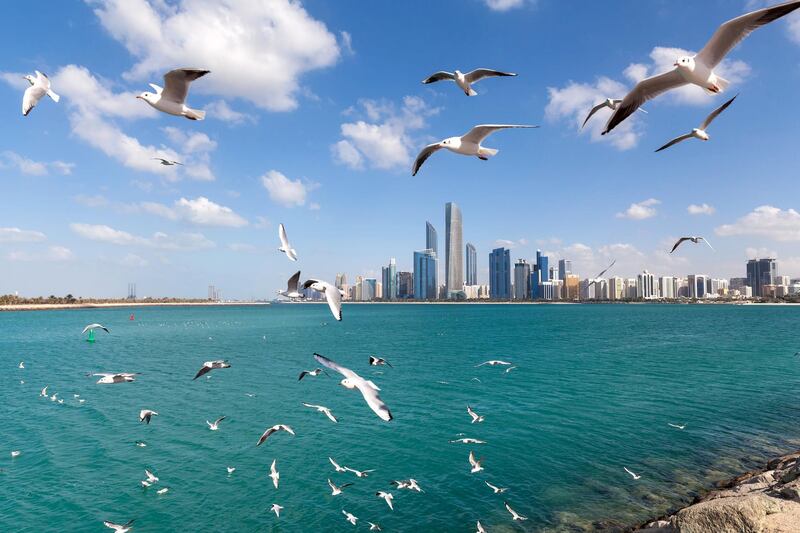A new economic collaboration committee made up of senior public and private sector figures in Abu Dhabi has been created to focus on the development of seven key sectors of the economy.
The body, which contains four representatives from government departments and 22 private sector organisations, was approved by the chairman of Abu Dhabi's executive office, Sheikh Khalid bin Mohamed bin Zayed, on Sunday after reviewing the Department of Economic Development's latest five-year plan.
Sheikh Khalid gave directions to create "a comprehensive micro, small and medium-sized enterprises (MSMEs) ecosystem to provide all services required to support these enterprises, including financial solutions", according to a tweet by Abu Dhabi Media Office on Sunday. Sheikh Khaled also asked officials to "submit proposals for regulatory reforms" to improve Abu Dhabi's competitiveness before the end of the year.
The four representatives from the public sector include the Department of Economic Development's chairman Mohammed Al Hammadi, Department of Municipalities and Transport chairman Falah Al Ahbabi, Department of Culture and Tourism chairman Mohammed Al Mubarak and the director-general and chief executive of Abu Dhabi Investment Office, Tariq Bin Hendi. The 22 private sector bodies represented include senior figures from ADCB, Aldar, Adnoc, Careem, Etisalat, First Abu Dhabi Bank and heads of major family businesses including Al Fahim Group and Al Nowais Investments.
These will form working groups focused on seven key sectors of the economy –construction and real estate; banking and financial services; retail, hospitality and tourism; education and technology; healthcare; industry and manufacturing and a specialist SME working group, the media office said.
Abu Dhabi, which accounts for about 6 per cent of the world’s proven oil reserves, introduced a number of measures to support its private sector following the outbreak of Covid-19 in March.
Relief measures included rent rebates, discounts on utility bills and loan guarantee packages to support SMEs in the emirate.
The pandemic has hit the global economy, which is set to contract 4.9 per cent this year and is projected to slide into the deepest recession since the Great Depression of the 1930s. The outbreak has hindered international trade and global movement restrictions have hurt the aviation and hospitality industries.
In June, the government said it paid 220 businesses a total of Dh8 million as part of an initiative that allows restaurants, entertainment and tourism outlets in the emirate to recover 20 per cent of their annual rent to ease the impact of the loss of business on the private sector.
Earlier this year, Abu Dhabi’s property developers also asked the government to direct banks to grant them more loans to “alleviate their financial burden” as many customers faced difficulties in making rental payments.







